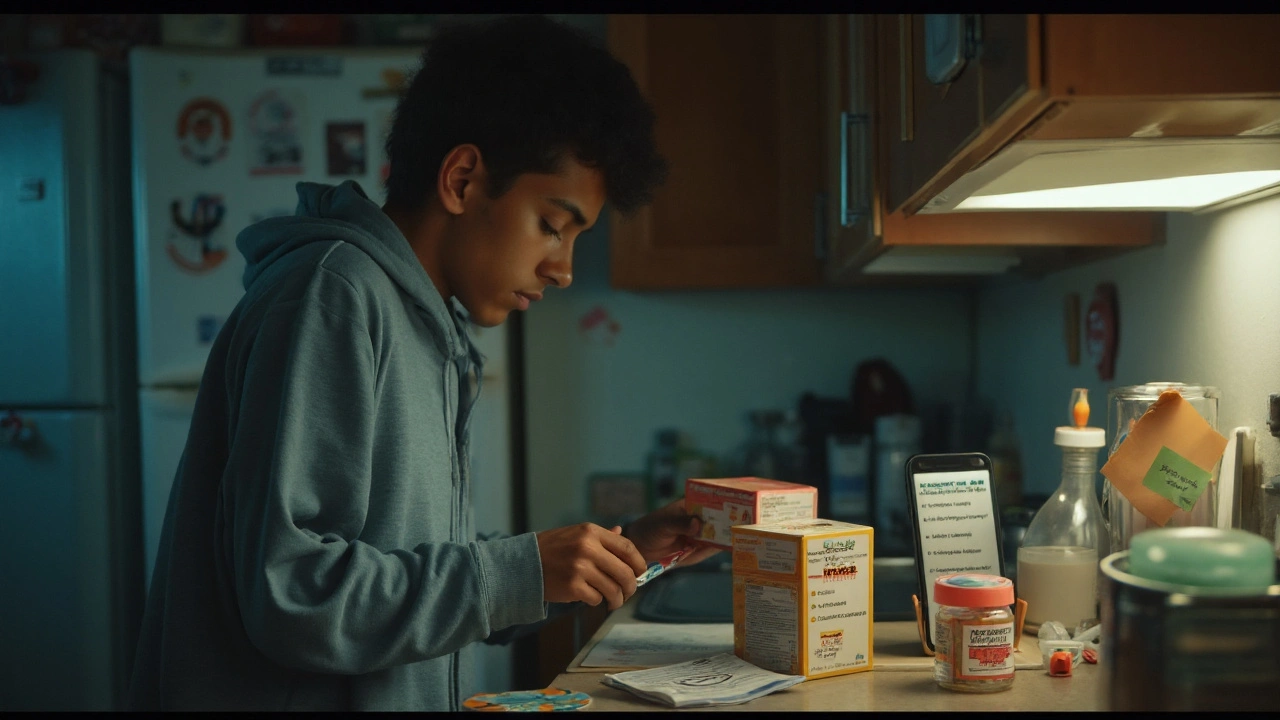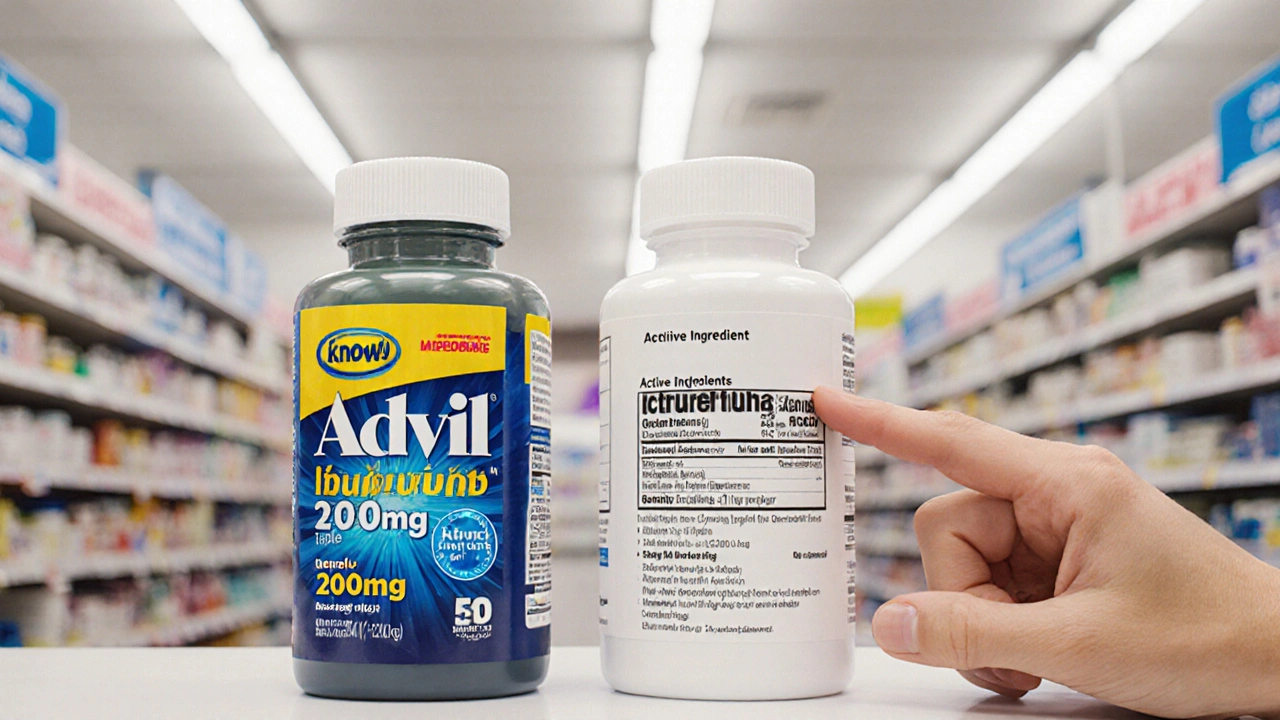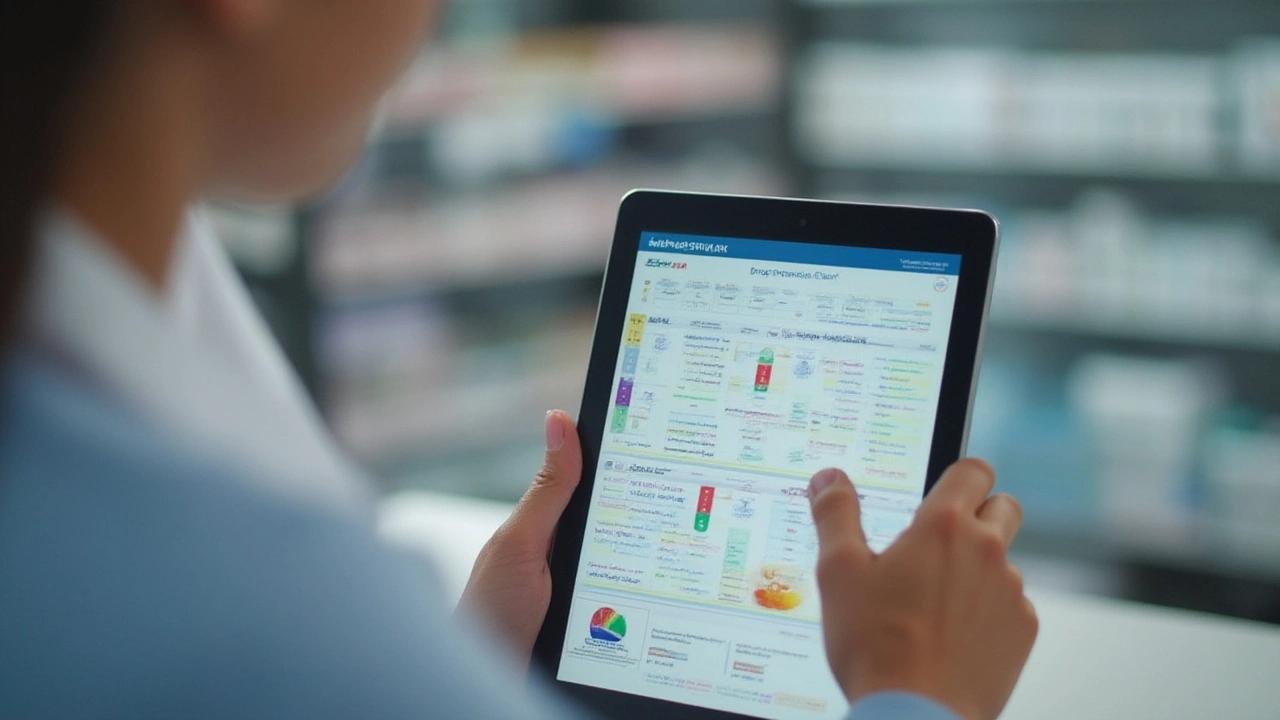Health and Nutrition Made Simple: Honest Tips for Real Life
Managing your health shouldn’t feel like a maze. If you’ve ever stood in a pharmacy aisle squinting at drug labels or felt lost figuring out if you should pick the brand-name pill or the generic, you’re in good company. The world of health and nutrition is full of info that’s either too confusing or sugarcoated. Here, you get straight talk—helpful, clear, no-nonsense guidance you can actually use every day.
Let’s kick things off with medication. When you’re prescribed something new, a drug interaction chart might look as confusing as a subway map. What do all those colors and columns mean? It’s easier than it seems. Most charts use red to shout “danger—don’t mix!” and green for “go for it.” Taking two meds from the red zone together? That’s a no-go. Save yourself the stress by checking these charts, asking your pharmacist real questions (they’ve heard ‘em all!), and keeping your personal list of daily meds updated. Toss old myths about brand-names vs. generics while you’re at it—most generics work the same, cost less, and pass the same safety checks.
Pain relief comes with its own mess of choices. Is ibuprofen better than paracetamol? How do painkillers even work? Here’s the quick lowdown: painkillers block the signals your nerves send when you’re hurt. Some work for your head—others for sore joints or cramps. Mixing different painkillers or doubling up on doses won’t get you pain-free faster; it just messes with your body. It pays off to actually know which pill does what, and how frequently you should take it, instead of just grabbing whatever’s in the bathroom cabinet. Ask your doctor or look up a reputable chart—but skip the homegrown remedies from that family WhatsApp group.
Drug substitutions are another area people tend to overthink. Your pharmacy might give you a ‘substitute’—usually a generic version of what’s on your prescription. If you’re worried about switching, don’t be afraid to ask what’s different (usually just the price, not the effectiveness). If you’re still not sure, pharmacists can break down the real differences in plain English, so you don’t have to guess.
Health isn’t only about pills and labels. What you eat changes your life more than you think. Slow down at mealtimes—no joke. When you eat slower, your body has time to send that “I’m full” signal. You eat less, digest better, and even stress less. This isn’t just diet-writer fluff—a study from a Japanese university tracked hundreds of people and found that folks who ate slow had healthier waistlines and steadier blood sugar. So chew slowly, put your fork down between bites, and leave your phone out of reach during dinner. Big city or small town, anyone can do it.
Real health hacks aren’t secret—they just get buried under flashy fads and confusing jargon. Here, you’ll find answers that are practical enough for everyday life, whether you’re sorting out your medicine or trying to eat a bit better. Smart, simple, and doable—that’s the Urban Chic Chronicles way.
How Future Pharmacists Are Trained: Modern Pharmacy Education Trends
Posted by Anna Fenton on Sep, 20 2025

Explore how pharmacy education is evolving to prepare future pharmacists with clinical simulations, interprofessional learning, AI tools, and telepharmacy.
Self‑Medication: Where to Draw the Line? Safe OTC Use, Red Flags, and When to See a Doctor
Posted by Kayla Susana on Sep, 6 2025

Clear rules for safe self-medication: what you can treat at home, red flags, dosing limits, interactions, and when to get care-practical 2025 guide.
How to Choose Drugs by Active Ingredient
Posted by Eamon Lockridge on Aug, 9 2025

Learn how to choose the right medication by focusing on the active ingredient instead of brand names. Save money and get the same results with generic drugs.
How to Read a Drug Interaction Chart Effortlessly: Safe Medication Management Guide
Posted by Elias Hartfield on Jul, 29 2025

Learn how to read a drug interaction chart with confidence. Find out what those columns and colors mean, avoid risky combos, and handle medications safely.
When to Substitute a Drug: Safe Guide to Drug Equivalents
Posted by Kayla Susana on Jul, 13 2025

Learn when it's smart and safe to substitute a drug for its equivalent. Understand the real differences between generics and brand names, and how to make the right choice.
How Painkillers Actually Work: The Full Science Behind Pain Relief
Posted by Anna Fenton on Jul, 12 2025

Ever wonder what painkillers really do in your body? Get a science-backed, clear breakdown of how these medications work, with tips for safer relief.
Brand-Name vs Generic Drugs: Key Differences, Myths, and Money-Saving Tips
Posted by Anna Fenton on Jul, 8 2025

Discover the real differences between brand-name and generic drugs: ingredients, effectiveness, regulations, costs, and what matters for your health—and your wallet.
Is it beneficial to eat slow?
Posted by Anna Fenton on Mar, 9 2023

Eating slowly has been linked to a number of potential health benefits, including weight loss, improved digestion, and better absorption of nutrients. Eating slowly also helps with mindful eating and can reduce the risk of overeating. Eating slowly can also help to reduce stress levels and improve heart health. Finally, eating slowly may help to reduce the risk of developing type 2 diabetes. In conclusion, eating slowly can have a number of positive health benefits and should be incorporated into a healthy lifestyle.
